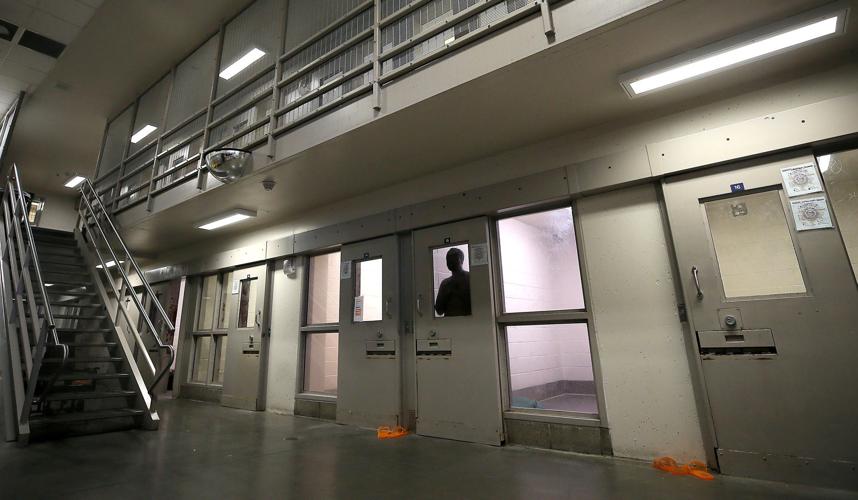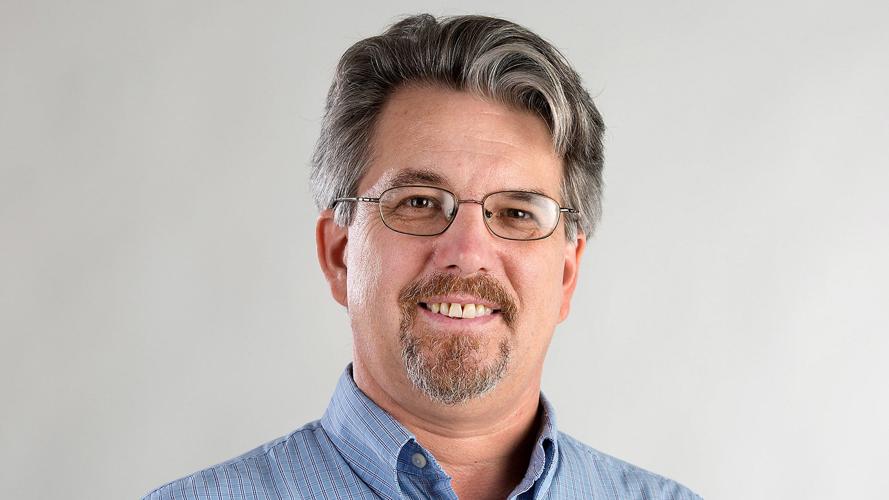At Jared Loughner’s first court hearing, he lifted his head from the defense table and shouted something semi-intelligible.
What I heard, sitting in the courtroom that day in May 2011, was: “Thank you for the freak show. … You’re treasonous!”
It was a disturbing moment in Tucson’s federal court. This hearing dealt with Loughner’s competence to stand trial for the mass shooting that at that time had occurred five months before — 10 years ago today.
By that time already, the press and the public had placed the shooting, which took six Tucsonans’ lives, in a category. It was a consequence, the gathering consensus concluded, of severe, undiagnosed and untreated schizophrenia, along with easy access to guns.
Ten years later, elected officials and the public have made many changes in an effort to deal with the problems exposed by the mass shooting, that gut punch to Tucson that we feel around this anniversary every year. But more than anything we’ve focused on noticing people in mental-health crisis and intervening with them.
That’s been a good thing, but of course it doesn’t mean such an attack couldn’t happen again. It could, but it might be a little harder.
The simplest and quickest response: Police protection became a permanent feature of political events like the Congress on Your Corner event that Gabrielle Giffords was holding that day.
Ron Barber, who was Giffords’ district director and succeeded her in office, said in the aftermath, congressional staffers called police in advance for every political gathering. You can see the change at any given political event in Tucson.
“When we contact police and sheriff’s offices they bring in a lot of folks,” said Barber, who is now the Southern Arizona director for Sen. Mark Kelly, Giffords’ husband.
That was a simple enough fix. Much more complicated: Intervening earlier — or at all —with people who are in mental-health crisis, especially those who have potential to lash out violently.
The January 8 Memorial, "The Embrace", will open on the anniversary of the mass shooting in 2011 to commemorate the 19 victims. The memorial is on the west side of the Old Pima County Courthouse in El Presidio Park. Video by Kelly Presnell / Arizona Daily Star 2020
To be clear, it’s a small percentage of people with serious mental illness who hurt other people. They are much more likely to be victimized by others or to hurt themselves than to hurt others. But the Jan. 8, 2011, rampage showed we needed to find the people who need help or have violent potential, intervening to get them help and keep them away from guns.
The Pima County Sheriff’s Department established the area’s first mental-health support team in June 2013, and the Tucson Police Department followed up with its own mental-health unit in January 2014.
One of the major duties they’ve taken on is serving the orders for mental-health evaluation, which were infrequently served before.
“We went from a service rate of somewhere in the 30% range up over 90%,” said Tucson police Sgt. Jason Winsky, who founded the TPD unit and just returned to running it. “What that translates to is hundreds more people.”
While most of those people aren’t likely to be violent, “There are cases we’ve worked that most likely would have ended in a violent encounter either with the public or with law enforcement,” Winsky said.
The number of petitions for court-ordered evaluations requested by the Pima County Attorney’s Office was relatively stable after the mass shooting, going from 2,030 in 2011 to 2,014 in 2016. Then they started spiking every year, hitting 3,774 in 2020.
“We’ve certainly seen a huge increase in the last two or three years,” said Jonathan Pinkney, who heads the office’s health law unit. “With this last year during COVID, we’ve been filling all the available slots for hearings.”
Court-ordered evaluations are just the first step, for people who refuse to be evaluated themselves but fit into one of three categories established by state law:
- A danger to themselves or others;
- “Gravely disabled,” or unable to take care of their basic needs;
- “Persistently or acutely disabled,” or likely to suffer severe mental or physical harm because of impaired judgment.
If an evaluation is ordered and the medical authorities find the patient fits into one of the categories, and if the patient refuses treatment, a further petition can be filed to force the patient into treatment.
As part of the court-ordered treatment, the judge will automatically order the patient not to possess weapons. This was true before 2011, but in those years, the information often didn’t make it into the NICS database, which is what licensed firearms dealers consult before making a gun sale.
A 2014 state law automated the transfer of mental-health court rulings into the database, and out of it when the prohibition is lifted. A statewide NICS task force meets quarterly to try to fix any loopholes and gaps, said Andrew Lefevre, director of the Arizona Criminal Justice Commission.
Two years ago, they upgraded the systems for inputting people with protection orders into the NICS system, and removing them when gun rights are restored. Next, they are looking to ensure that it goes into the system when a judge orders a defendant not to possess firearms as a condition of release from custody.
The system still has flaws: Ryan Schlesinger, whom TPD’s mental-health unit dealt with frequently, bragged that he could buy a gun despite his mental-health history because he had a concealed-carry permit. He is accused of killing deputy U.S. Marshal Chase White in 2018 while a law-enforcement team served an arrest warrant on him at his Tucson home.
In addition to all the systematic changes, Barber won funding for a “mental-health first aid” program that spread awareness of what to look for and do to help people in mental-health crises.
So, a lot changed in the Tucson area after the mass shooting in the area of mental-health intervention. What didn’t change at all is gun laws.
State Rep. Randy Friese got involved in politics as a result of the mass shooting — working as a surgeon on Jan. 8, 2011, he treated victims at University Medical Center. But he hasn’t had any success in six years in the Legislature getting laws passed, such as a bill that would require background checks for every sale.
He also supported efforts by Gov. Doug Ducey to establish so-called Severe Threat Orders of Protection, which would allow authorities to seize weapons from people who pose an imminent threat. That failed, too.
One of the reasons is the influence of the Arizona Citizens Defense League, probably the most powerful gun-rights group at the state Capitol.
“It contained no due process,” Charles Heller, of the league, said of the proposal. “It was a way of disarming someone before they had their day in court.”
More broadly, he said, “We have encouraged people to use the adequate laws that already exist.”
Forced by law to receive treatment, something changed in Jared Loughner between his May 2011 outburst and his November 2012 sentencing. As I sat in the jury box watching the proceedings, he was alert, spoke with his attorney and appeared to grasp what was happening. Treatment had worked but was too late.
With the systematic improvements in Tucson, Pima County and Arizona, others in mental-health crisis have been caught and helped before it was too late.
Photos: Ninth Anniversary of Jan. 8th, 2011 Shooting
Ninth anniversary of the Jan. 8, 2011 Tucson Tragedy
Updated
Nancy Bowman, right, holds a placard which displays the six people who died at the January 8th mass shooting in 2011, during a commemoration at the Historic Pima County Courthouse, 115 N. Church Ave., on January 8, 2020. Bowman, a registered nurse, came to the aid of the victims after the shooting. Six people were killed and thirteen were wounded including former Congresswoman Gabrielle Giffords.
Ninth anniversary of the Jan. 8, 2011 Tucson Tragedy
Updated
Rev. Joseph Fitzgerald, left, chaplain at Banner University Medical Center, reads off the names of those killed and wounded at the January 8th mass shooting in 2011, as Captain Lance Cullumber, of Northwest Fire District, rings a bell after each name during a commemoration at the Historic Pima County Courthouse, 115 N. Church Ave., on January 8, 2020.
Ninth anniversary of the Jan. 8, 2011 Tucson Tragedy
Updated
From left to right, Captain Mark Kelly, former Congresswoman Gabrielle Giffords and former Congressman Ron Barber talk to a friend before the start of a commemoration ceremony for the ninth anniversary of the January 8th, 2011 mass shooting.
Ninth anniversary of the Jan. 8, 2011 Tucson Tragedy
Updated
Onlookers watch commemoration ceremony for the ninth anniversary of the January 8th, 2011 mass shooting at the Historic Pima County Courthouse, 115 N. Church Ave., on January 8, 2020. Six people were killed and thirteen were wounded during a "Congress on Your Corner" event hosted by former Congresswoman Gabrielle Giffords.
Ninth anniversary of the Jan. 8, 2011 Tucson Tragedy
Updated
Former Congressman Ron Barber becomes emotional as the names of those killed and wounded are called out during a commemoration ceremony for the ninth anniversary of the January 8th, 2011 mass shooting at the Historic Pima County Courthouse, 115 N. Church Ave., on January 8, 2020.
Ninth anniversary of the Jan. 8, 2011 Tucson Tragedy
Updated
Former Congresswoman Gabrielle Giffords, center, sits with her husband, Captain Mark Kelly, during a commemoration ceremony for the ninth anniversary of the January 8th, 2011 mass shooting at the Historic Pima County Courthouse, 115 N. Church Ave., on January 8, 2020.
Ninth anniversary of the Jan. 8, 2011 Tucson Tragedy
Updated
Onlookers watch commemoration ceremony for the ninth anniversary of the January 8th, 2011 mass shooting at the Historic Pima County Courthouse, 115 N. Church Ave., on January 8, 2020. Six people were killed and thirteen were wounded during a "Congress on Your Corner" event hosted by former Congresswoman Gabrielle Giffords.





